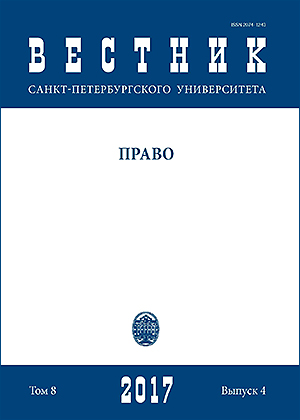Modern challenges of criminal justice in the Republic of Armenia
DOI:
https://doi.org/10.21638/11701/spbu14.2017.408Abstract
Problems related to the reform of criminal-procedural legislation are more than important in the Republic of Armenia. This has been determined by a number of factors. The process of preparation of a new Criminal Procedure Code of the Republic of Armenia (CPC RA), begun in 2010, is considered as a transitional period from the viewpoint of approbation of some new institutes. Such an attitude is conditioned by the fact that crucial change of the institutes and provisions of the acting Code may have a negative influence on law-enforcement practice due to some objective and subjective reasons. According to the Draft of the Criminal Procedure Code of the RA, the main goals of the future system of criminal procedure and the tools aimed at their effective realization can be summarized as follows: ensuring proportional protection of public and private interests on the basis of generally recognized principles of law, growth of the role of judicial power and court in the field of criminal justice, transposition of the burden of investigation from the pretrial stage to the court, decrease of the volume of preliminary investigation, full realization within the framework of criminal justice of the principles of adversary trial, as well as more precise legislative regulation of such forms of revision of judicial acts as appellate procedure and cassation. The aforementioned directives, among others, set forth in the Draft Code predetermine new vector of development of criminal procedure of the Republic of Armenia. Refs 10.
Keywords:
reform of criminal-procedural legislation, Draft Criminal Procedure Code of the RA, public and private interests, adversary trial, revision of judicial acts
Downloads
References
Downloads
Published
How to Cite
Issue
Section
License
Articles of "Vestnik of Saint Petersburg University. Law" are open access distributed under the terms of the License Agreement with Saint Petersburg State University, which permits to the authors unrestricted distribution and self-archiving free of charge.






